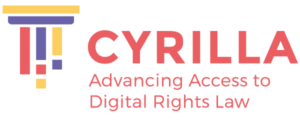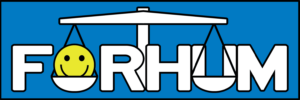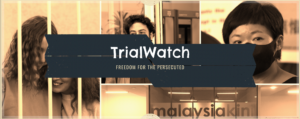3 May
Protecting Freedom of Expression through Comparative Global Case Law: Databases to Advance Rights
Sponsored by: Columbia GFoE and UNESCO
Defenders of human rights need access to comparative law to identify common issues or trends and build their litigation strategies and advocacy campaigns. Comparative analysis can help to identify where there is backsliding; it also facilitates leveraging progressive precedents and even advancing novel legal theories. But locating and wading through legal developments and decisions can be tedious and time consuming. A range of organizations from the U.S., Europe, Latin America, and Africa are already cooperating to do this work – they have identified emblematic freedom of expression cases, monitored trials, found and analyzed the court documents, and made the information free and easy to access online. Representatives from these organizations will present a series of case studies on a range of themes to demonstrate how comparative data can be used to identify problems, compare how courts in different jurisdictions have understood and applied legal principles and tests, and show how to use emerging international standards to support advocacy. Learn from experts how these resources can equip lawyers and human rights defenders to build strong arguments and advance rights.
Speakers:
- Maria Luisa, Special Advisor, Columbia Global Freedom of Expression
- Dr Hawley Johnson, Associate Director, Global Freedom of Expression
- Mehdi Benchelah, Senior Project Officer, Freedom of Expression and Safety of Journalists, UNESCO
- Juan Manuel Ospina, Legal Researcher, Global Freedom of Expression [GFoE Case Law Database]
- Daniel Ospina Celis, Researcher, Dejusticia
- Nelly Chepngetich Rotich, Research Fellow, Centre for Intellectual Property and Information Technology Law (CIPIT), Strathmore University, Kenya [Cyrilla Database]
- Dr Natalie Alkiviadou, Research Fellow, Future of Free Speech [FFS Hate Speech Databases]
- Dr Alberto Godioli, Associate Professor, University of Groningen, Netherlands [ForHum Database]
- Laura Little, James G. Schmidt Professor of Law at Temple University Law School [ForHum Database]
- Raissa Carrillo, Coordinator of Protection and Legal Defense for Journalists, Fundación para la Libertad de Prensa [FLIP]
- Stephen Townley, Legal Director of the TrialWatch initiative at the Clooney Foundation for Justice [TrialWatch]
 Hawley Johnson is the Associate Director of Columbia Global Freedom of Expression. Since 2014 she has managed the development of the Case Law Database which hosts analyses of seminal freedom of expression court rulings from more than 130 countries. Hawley has over twelve years of experience in international media development both academically and professionally, with a focus on Eastern Europe. From 2013-2014 she worked with the award-winning Organized Crime and Corruption Reporting Project to launch the Investigative Dashboard (ID), a joint effort with Google Ideas offering specialized databases and research tools for journalists in emerging democracies. Previously, as the Associate Director of the Media and Conflict Resolution Program at New York University, she oversaw the implementation of over eight US government sponsored media development programs in eleven countries. In 2012, she completed her Ph.D. in Communications at Columbia University’s Graduate School of Journalism. Her dissertation – a study of the evolution of media development policies in Bosnia-Herzegovina, Kosovo and Macedonia – was grounded in extensive field research in the region. She has a M.A. from Columbia University’s School of International and Public Affairs and a B.A. in International Affairs from the School of International Service at American University.
Hawley Johnson is the Associate Director of Columbia Global Freedom of Expression. Since 2014 she has managed the development of the Case Law Database which hosts analyses of seminal freedom of expression court rulings from more than 130 countries. Hawley has over twelve years of experience in international media development both academically and professionally, with a focus on Eastern Europe. From 2013-2014 she worked with the award-winning Organized Crime and Corruption Reporting Project to launch the Investigative Dashboard (ID), a joint effort with Google Ideas offering specialized databases and research tools for journalists in emerging democracies. Previously, as the Associate Director of the Media and Conflict Resolution Program at New York University, she oversaw the implementation of over eight US government sponsored media development programs in eleven countries. In 2012, she completed her Ph.D. in Communications at Columbia University’s Graduate School of Journalism. Her dissertation – a study of the evolution of media development policies in Bosnia-Herzegovina, Kosovo and Macedonia – was grounded in extensive field research in the region. She has a M.A. from Columbia University’s School of International and Public Affairs and a B.A. in International Affairs from the School of International Service at American University.
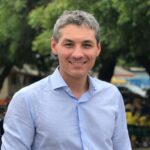 Mehdi Benchelah, Senior Project Officer, Section for Freedom of Expression and Safety of Journalists, UNESCO. Mehdi Benchelah is a senior project officer at UNESCO and is coordinating the Rule of Law, Policy and Freedom of Expression Team within the Section for Freedom of Expression and Safety of Journalists. He coordinates the Judges’ Initiative, a global strategy for the judiciary systems on freedom of expression, access to information and safety of journalists, by fostering strategic partnerships with Regional Human Rights Courts, Supreme Courts, Judicial Training Institutes and Prosecutors’ Offices across the world. He also coordinates the implementation of an initiative to train law enforcement officers on human rights, freedom of expression and safety of journalists’ related issues, as well as their relationship with the media. He is also in charge of the Media and Elections programme to tackle disinformation and violence during election periods while respecting international standards on freedom of expression.
Mehdi Benchelah, Senior Project Officer, Section for Freedom of Expression and Safety of Journalists, UNESCO. Mehdi Benchelah is a senior project officer at UNESCO and is coordinating the Rule of Law, Policy and Freedom of Expression Team within the Section for Freedom of Expression and Safety of Journalists. He coordinates the Judges’ Initiative, a global strategy for the judiciary systems on freedom of expression, access to information and safety of journalists, by fostering strategic partnerships with Regional Human Rights Courts, Supreme Courts, Judicial Training Institutes and Prosecutors’ Offices across the world. He also coordinates the implementation of an initiative to train law enforcement officers on human rights, freedom of expression and safety of journalists’ related issues, as well as their relationship with the media. He is also in charge of the Media and Elections programme to tackle disinformation and violence during election periods while respecting international standards on freedom of expression.
Mehdi Benchelah was posted in Haiti from 2010 to 2011 following the 2010 earthquake to coordinate UNESCO emergency programmes for the recovery of the media sector and the initiatives to support the culture sector. He was the Head of UNESCO Office in Tunisia from 2012 to 2014 following the Revolution and democratic transition, and coordinated the support of the media law reform, capacity-building activities for the media including in times of election, and other activities to support national authorities and civil society organizations.
Prior to joining UNESCO, Mehdi worked for a decade as a freelance reporter covering international affairs and conflicts in the Arab region, Africa and Latin America. Notably, he covered the Algerian civil war, the Second Intifada in Palestine and Israel, the Iraq war following the United States’ 2003 invasion, and the drugs war in Latin America. He was the permanent correspondent of Radio France and the leading magazine Le Point while he was based in the Gaza strip covering the Israeli-Palestinian conflict and Middle East news from 1998 to 2000. A graduate of the Law School of Sorbonne University Paris I with a Masters’ degree in Law, he is the author of non-fiction: Le Pèlerin de Jerusalem (with Jean Lecuyer, J.C Lattes publishing 2000), Journal d’Algérie 1991-2001 (with Michael Von Graffenried, 2003) and fictions books: Les flamboyants de Gaza (Cherche Midi publishing 2004) and Bassora-Express (Cherche Midi publishing 2006).
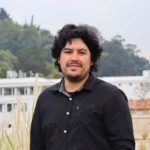 Juan Manuel Ospina has a master’s degree in Journalism from Universidad de los Andes in Colombia, where he received his law degree as well. He has taught classes at the university level, and his first book, about public health in Colombia, is expected to be published in 2022. Juan Manuel was also Chief Editor at El Uniandino, a leading college newspaper from Bogotá.
Juan Manuel Ospina has a master’s degree in Journalism from Universidad de los Andes in Colombia, where he received his law degree as well. He has taught classes at the university level, and his first book, about public health in Colombia, is expected to be published in 2022. Juan Manuel was also Chief Editor at El Uniandino, a leading college newspaper from Bogotá.
 Daniel Ospina Celis is a researcher at the Center for the Study of Law, Justice and Society – Dejusticia. He holds a Bachelor of Laws and an MA in History from Universidad de los Andes, Colombia. He has conducted extensive research on transparency and access to public information in Latin America.
Daniel Ospina Celis is a researcher at the Center for the Study of Law, Justice and Society – Dejusticia. He holds a Bachelor of Laws and an MA in History from Universidad de los Andes, Colombia. He has conducted extensive research on transparency and access to public information in Latin America.
 Nelly Chepngetich Rotich is a Research Fellow at CIPIT. She heads the Data Policy and Governance and Cyber Law and Policy Departments. Nelly is a Doctor of Laws Candidate at the University of Pretoria. She holds a Master of Law (Pretoria) and a Bachelor of Laws (Kabarak). Nelly is an Advocate of the High Court of Kenya and a Certified Professional Mediator. Her research interest and areas of practice are digital rights, digital trade, and data protection and governance.
Nelly Chepngetich Rotich is a Research Fellow at CIPIT. She heads the Data Policy and Governance and Cyber Law and Policy Departments. Nelly is a Doctor of Laws Candidate at the University of Pretoria. She holds a Master of Law (Pretoria) and a Bachelor of Laws (Kabarak). Nelly is an Advocate of the High Court of Kenya and a Certified Professional Mediator. Her research interest and areas of practice are digital rights, digital trade, and data protection and governance.
 Natalie Alkiviadou is Senior Research Fellow at Justitia, working on the Future of Free Speech project. Her research interests lie in the freedom of expression, the far-right, hate speech, hate crime and non-discrimination. She holds a PhD (Law) from the Vrije Universiteit Amsterdam. She has published three monographs, namely The Far-Right in International and European Law (Routledge 2019), Legal Challenges to the Far-right: Lessons from England and Wales (Routledge 2019) and The Far-Right in Greece and the Law (Routledge 2022). Natalie has over ten years’ experience in working with civil society, educators and public servants on human rights education and has participated in European actions such as the High-Level Group on Combatting Racism, Xenophobia and Other Forms of Intolerance. Natalie has been the country researcher for the 2019 European Network against Racism report on Hate Crime and the 2022 report on structural racism. She has drafted handbooks, strategy papers and shadow reports for projects funded by the Anna Lindh Foundation, the European Commission and the European Youth Foundation, on themes such as hate speech. Natalie is an international Fellow (2022/23) of the ISLC – Information Society Law Centre of the Università degli Studi di Milano.
Natalie Alkiviadou is Senior Research Fellow at Justitia, working on the Future of Free Speech project. Her research interests lie in the freedom of expression, the far-right, hate speech, hate crime and non-discrimination. She holds a PhD (Law) from the Vrije Universiteit Amsterdam. She has published three monographs, namely The Far-Right in International and European Law (Routledge 2019), Legal Challenges to the Far-right: Lessons from England and Wales (Routledge 2019) and The Far-Right in Greece and the Law (Routledge 2022). Natalie has over ten years’ experience in working with civil society, educators and public servants on human rights education and has participated in European actions such as the High-Level Group on Combatting Racism, Xenophobia and Other Forms of Intolerance. Natalie has been the country researcher for the 2019 European Network against Racism report on Hate Crime and the 2022 report on structural racism. She has drafted handbooks, strategy papers and shadow reports for projects funded by the Anna Lindh Foundation, the European Commission and the European Youth Foundation, on themes such as hate speech. Natalie is an international Fellow (2022/23) of the ISLC – Information Society Law Centre of the Università degli Studi di Milano.
 Laura Little is the James G. Schmidt Professor of Law at Temple University Law School. She has published extensively on free speech jurisprudence, including the monographs First Amendment (Wolters Kluwer, 2021) and Guilty Pleasures: Comedy and Law in America (Oxford University Press, 2019). She previously represented media outlets in Philadelphia and served as a law clerk for Chief Justice William H. Rehnquist, US Supreme Court.
Laura Little is the James G. Schmidt Professor of Law at Temple University Law School. She has published extensively on free speech jurisprudence, including the monographs First Amendment (Wolters Kluwer, 2021) and Guilty Pleasures: Comedy and Law in America (Oxford University Press, 2019). She previously represented media outlets in Philadelphia and served as a law clerk for Chief Justice William H. Rehnquist, US Supreme Court.
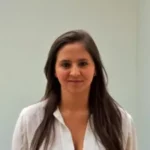 Raissa Carrillo Villamizar heads the legal department at Fundación para la Libertad de Prensa (FLIP). She leads advocacy and strategic litigation, at the national and regional levels, for the protection and promotion of freedom of speech. Particularly, she has conducted research on slapps in the region, illegal surveillance, and pluralism in the broadcasting system in Colombia. She holds a Bachelor of Laws from Universidad de los Andes, Colombia, and an LLM in International Human Rights from Northwestern University. She served as a law clerk at the Constitutional Court and Professional Visitor at the Interamerican Court of Human Rights.
Raissa Carrillo Villamizar heads the legal department at Fundación para la Libertad de Prensa (FLIP). She leads advocacy and strategic litigation, at the national and regional levels, for the protection and promotion of freedom of speech. Particularly, she has conducted research on slapps in the region, illegal surveillance, and pluralism in the broadcasting system in Colombia. She holds a Bachelor of Laws from Universidad de los Andes, Colombia, and an LLM in International Human Rights from Northwestern University. She served as a law clerk at the Constitutional Court and Professional Visitor at the Interamerican Court of Human Rights.
 Stephen Townley is Legal Director of the TrialWatch initiative at the Foundation. Previously, he served as Deputy Legal Adviser to the U.S. Mission to the UN in New York, Deputy Legal Adviser to the U.S. Mission to the UN in Geneva, and Special Assistant to the Legal Adviser at the U.S. Department of State, among other government positions. He has published on international law topics in journals such as the Chicago Journal of International Law and the Vanderbilt Journal of Transnational Law. He clerked on the U.S. Court of Appeals for the Second Circuit and holds a J.D. from Yale Law School and a B.A. from Yale College.
Stephen Townley is Legal Director of the TrialWatch initiative at the Foundation. Previously, he served as Deputy Legal Adviser to the U.S. Mission to the UN in New York, Deputy Legal Adviser to the U.S. Mission to the UN in Geneva, and Special Assistant to the Legal Adviser at the U.S. Department of State, among other government positions. He has published on international law topics in journals such as the Chicago Journal of International Law and the Vanderbilt Journal of Transnational Law. He clerked on the U.S. Court of Appeals for the Second Circuit and holds a J.D. from Yale Law School and a B.A. from Yale College.
CYRILLA is an open database of digital rights law from around the world. The multilingual database is developed and maintained by the CYRILLA Collaborative, a global initiative that seeks to map and analyze the evolution and impacts of legal frameworks on digital environments, particularly in the Global South.
The Forum for Humor and the Law (ForHum) was founded in 2022 by Dr Alberto Godioli (University of Groningen) and Prof. Laura E. Little (Temple Law School). Its goal is to serve as a platform for practicing lawyers, legal and humor scholars, artists, and anyone who might be interested in the multiform relationship between humor, freedom of expression and the law. The ForHum website was created in the framework of the ‘Humor in Court‘ project, funded by the Dutch Research Council from 2022 to 2027. The website includes regular updates on related topics, a list of scholarly resources, and a comprehensive database of legal cases regarding humor and satire from all over the world.
TrialWatch is a program of the Clooney Foundation for Justice and the first initiative in the world that monitors criminal trials globally and defends the rights of individuals who are unfairly imprisoned. The initiative focuses on trials against those who are most vulnerable to abusive legal systems – journalists, women, democracy-defenders, LGBTQ+ people, and minorities. Launched in 2019, TrialWatch has monitored trials in over 40 countries, gathering data from courtrooms all over the world and producing Fairness Reports authored by experts in international law.
Columbia Global Freedom of Expression seeks to contribute to the development of an integrated and progressive jurisprudence and understanding on freedom of expression and information around the world. To achieve its mission, Global Freedom of Expression undertakes and commissions research and policy projects, organizes events and conferences, and participates in and contributes to global debates on the protection of freedom of expression and information in the 21st century. The online Global Database of Freedom of Expression Case Law is supported by a network of international experts. It surveys jurisprudence around the world, critically reviews exemplary cases, engages in comparative analysis, and aims to identify national, regional and global trends.
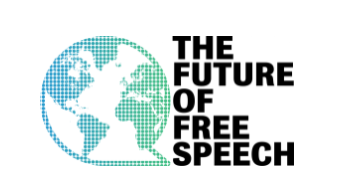 Within the framework of the Future of Free Speech (FFS) project, FFS Hate Speech Case Database was created for purposes of compiling material on hate speech at a Council of Europe level which is useful for, amongst others, practitioners, civil society, researchers, and policy makers. This database includes a compilation of case law of the European Court of Human Rights on Hate Speech. It divides the cases thematically (ethnic hatred, violence, LGBT, religious hatred, totalitarianism, and genocide denial). It allows users to view cases by theme or countries. The database also includes relevant documents of the Council of Europe, the Parliamentary Assembly, and the European Commission against Racism and Intolerance.
Within the framework of the Future of Free Speech (FFS) project, FFS Hate Speech Case Database was created for purposes of compiling material on hate speech at a Council of Europe level which is useful for, amongst others, practitioners, civil society, researchers, and policy makers. This database includes a compilation of case law of the European Court of Human Rights on Hate Speech. It divides the cases thematically (ethnic hatred, violence, LGBT, religious hatred, totalitarianism, and genocide denial). It allows users to view cases by theme or countries. The database also includes relevant documents of the Council of Europe, the Parliamentary Assembly, and the European Commission against Racism and Intolerance.
 FLIP is a non-governmental, non-profit organization in Colombia that defends freedom of expression and promotes a better climate for those who practice journalism. The organization provides advice and accompaniment to journalists so that freedom of expression is protected by the State and recognized by citizens as an important value in society. Together with CEJIL, a non-governmental, non-profit organization, FLIP won the Global Freedom of Expression Prize for their work representing journalist Jineth Bedoya Lima before the Inter-American Court of Human Rights (IACtHR) for the multiple violations of her rights due to her investigative work.
FLIP is a non-governmental, non-profit organization in Colombia that defends freedom of expression and promotes a better climate for those who practice journalism. The organization provides advice and accompaniment to journalists so that freedom of expression is protected by the State and recognized by citizens as an important value in society. Together with CEJIL, a non-governmental, non-profit organization, FLIP won the Global Freedom of Expression Prize for their work representing journalist Jineth Bedoya Lima before the Inter-American Court of Human Rights (IACtHR) for the multiple violations of her rights due to her investigative work.



